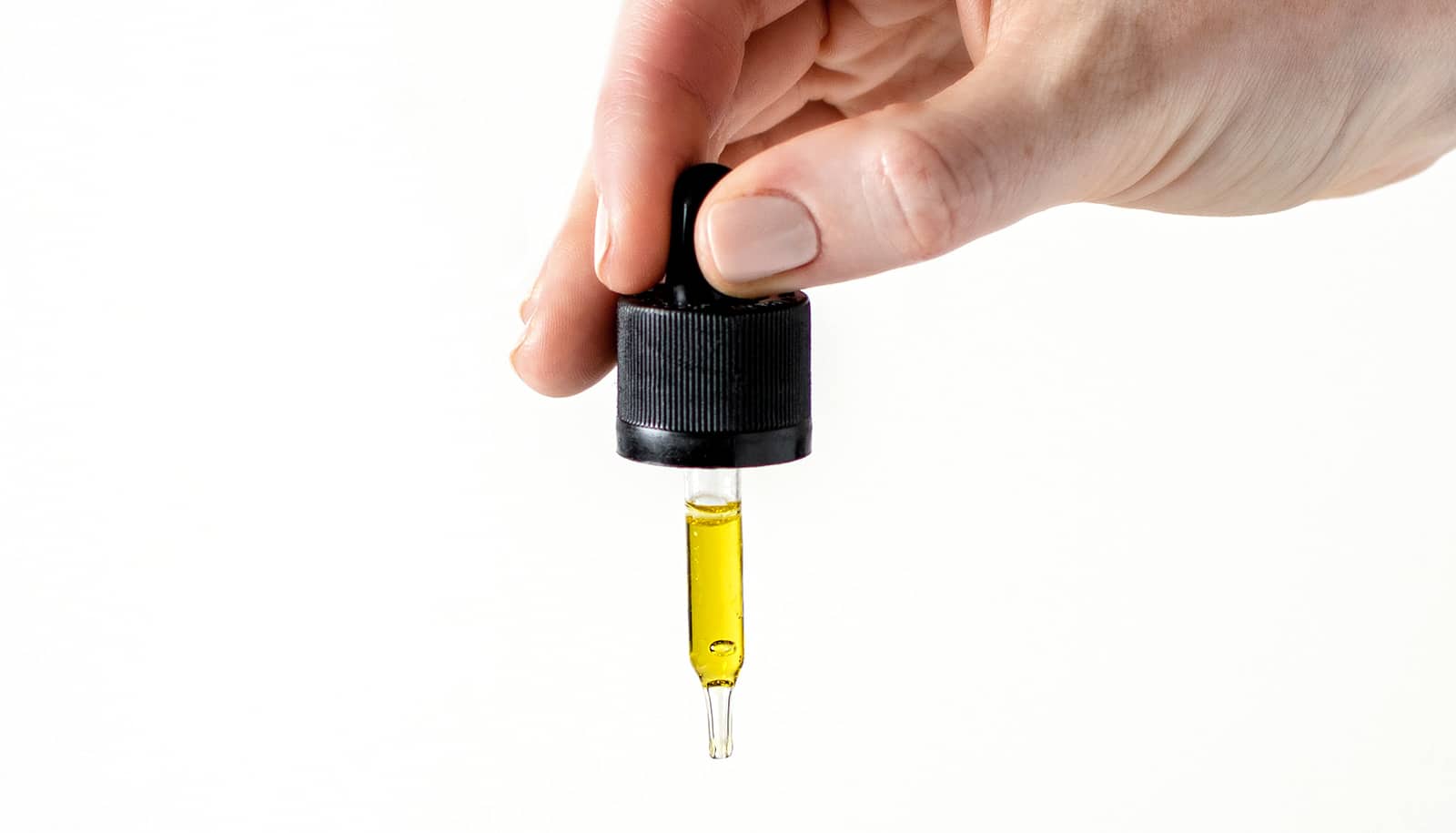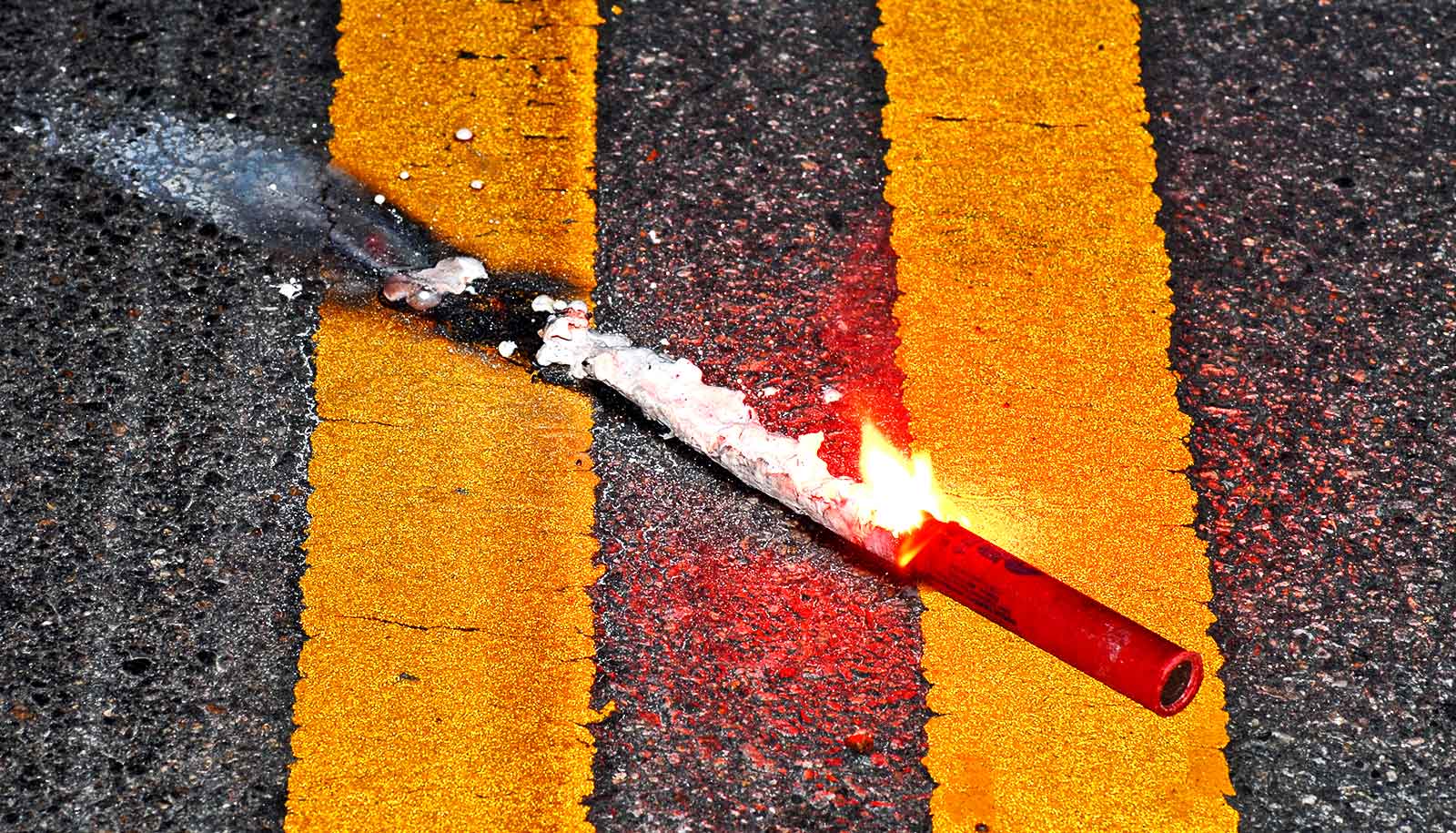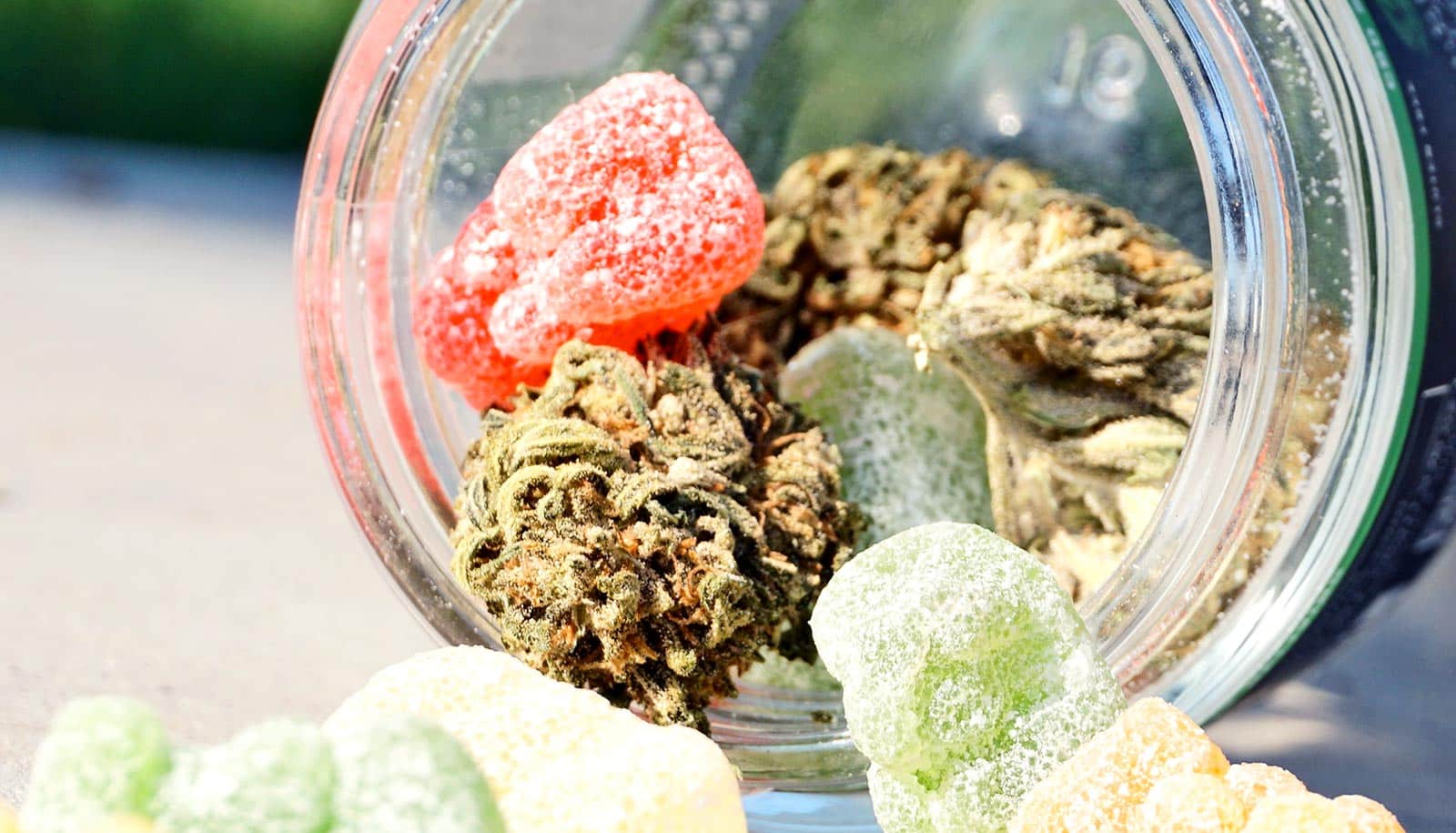The cannabis component CBD inhibits the breakdown of THC, which may result in a stronger and longer high after using edibles, research finds.
Contrary to some common claims, the researchers found that relatively high doses of CBD may increase the adverse effects of THC, the main active ingredient in cannabis that can cause a mood alteration or a “high” sensation.
The results of the study, published in JAMA Network Open, show that the maximum amount of THC measured in participants’ blood samples was almost twice as high after consuming a brownie containing THC with CBD than after eating a brownie with only THC, even though the dose of THC in each brownie (20 mg) was the same. In addition, the maximum amount of 11-OH-THC (a metabolic byproduct of THC that produces drug effects similar to THC) was 10-fold greater after eating the brownie with the high CBD extract compared with the one containing high THC extract.
The work examines how the body absorbs, eliminates, and responds to cannabis extracts that varied with respect to THC and CBD concentrations.
“The fact that THC and CBD were orally administered was very important for the study and played a large role in the behavioral effects and drug interactions we saw,” says Austin Zamarripa, postdoctoral research fellow at the Johns Hopkins University School of Medicine and the study’s lead author.
Prior controlled human studies evaluating these interactions have predominantly administered THC and CBD by inhalation or intravenously, or have not administered them at the same time. For this reason, much of the existing data regarding interactions between THC and CBD may not apply to edible cannabis products such as baked goods, candies, and gummies, which get metabolized in the intestine and liver.
“Overall, we saw stronger subjective drug effects, greater impairment of cognitive [thinking] and psychomotor [moving] ability and greater increase in heart rate when the same dose of THC was given in a high CBD cannabis extract, compared with a high THC extract with no CBD,” says Zamarripa.
The new study, which tested each type of cannabis extract and a placebo within the same subjects rather than using different people for each drug type, took place from January 2021 to March 2022 at the Behavioral Pharmacology Research Unit at Johns Hopkins Bayview Medical Center. The researchers recruited 18 adult participants (11 men and 7 women) who had not used cannabis for at least 30 days prior to beginning the study.
Study volunteers took part in three sessions, each separated by at least one week. In each session, participants consumed a brownie containing either 20 mg of THC, 20 mg of THC and 640 mg of CBD, or no THC or CBD (placebo). Neither the participants nor the investigators knew in advance what was in the brownie that participants ate on a given session. Participants also took a drug cocktail consisting of five cytochrome, or CYP, probe drugs (100 mg caffeine, 25 mg losartan, 20 mg omeprazole, 30 mg dextromethorphan, and 2 mg midazolam) 30 minutes after eating each brownie. These drugs will help the scientists figure out how CBD and THC affect how participants’ bodies metabolize other commonly used medications and dietary supplements (in analyses that they will publish separately).
To create a basis for comparison, baseline blood samples were collected from all participants before each session, along with their vital signs, including heart rate and blood pressure, and measures of cognitive and psychomotor performance. Participants provided blood and urine samples at timed intervals for 12 hours and then again approximately 24 hours after drug dosing was completed. Self-reported drug effects were measured using the Drug Effect Questionnaire, or DEQ, a standardized tool used to assess aspects of subjective experiences after being given a psychoactive drug like THC or cannabis.
Although participants experienced the typical effects produced by cannabis with both the CBD and THC extracts, there were notable differences between the two, which are likely the result of the increased concentration of THC and 11-OH-THC in the blood after the CBD extract was consumed.
Using the DEQ tool, participants rated subjective drug effects with a scale from 0 to 100, with 0 being “not at all affected” and 100 being “extremely affected.” Among the subjective ratings, participants experienced greater increases in overall drug effects, unpleasant drug effects, feeling sick, dry/red eyes, and difficulty performing routine tasks when they consumed the brownie with both CBD and THC compared the THC-only brownie. After eating the brownie with the high CBD cannabis extract, participants showed significantly more impairment in performance on tests of memory and attention compared with when they consumed the brownie with the high THC extract.
Consuming the high CBD extract brownie also resulted in a greater increase in heart rate, from a 10 beats per minute increase from baseline [THC] to a 25 beats per minute increase from baseline [THC + CBD]. The placebo brownie did not increase the subjective drug effect ratings or alter the performance on any cognitive or psychomotor tasks.
“We have demonstrated that with a relatively high oral dose of CBD [640 mg] there can be significant metabolic interactions between THC and CBD, such that the THC effects are stronger, longer-lasting, and tend to reflect an increase in unwanted adverse effects,” says Ryan Vandrey, professor of psychiatry and behavioral sciences at the Johns Hopkins University School of Medicine and the study’s senior author.
Vandrey notes that another of his team’s recent studies found that CBD products don’t always have correct labels.
“Our new study suggests that it’s important for folks to be aware that if they’re going to take a high-dose CBD extract, they also need to be mindful about interactions with other medications. Individuals should discuss with their doctor whether they should consider dose adjustments of THC and other medications if they’re also taking CBD,” says Vandrey.
The researchers say that future studies are needed to further understand the impact of CBD and THC dose, relative concentration, frequency of use, and individual health differences on how our bodies metabolize commonly used medications. This kind of research is needed to inform clinical and regulatory decision-making regarding the therapeutic and nontherapeutic use of cannabis products.
Source: Johns Hopkins University



